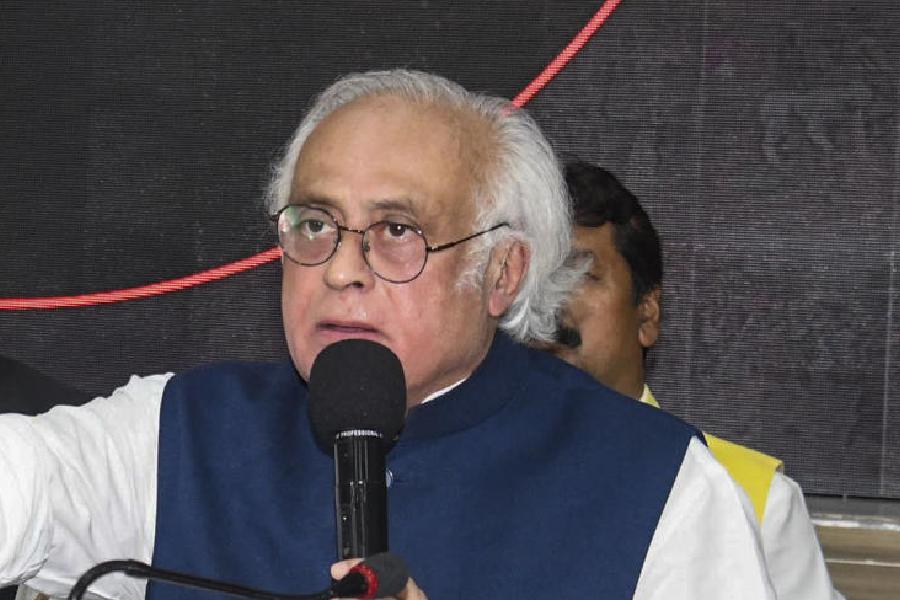On the 20th anniversary of the Right to Information (RTI) Act, Congress leaders accused the Modi government of systematically hollowing out the law that was meant to empower citizens and hold power to account.
The party warned that the erosion of RTI equates to the erosion of democracy itself.
"In March 2023, the Digital Personal Data Protection Act (DPDP, 2023) was passed, in the last two lines of which the RTI was abolished. This law brought an amendment to the RTI. It states that the RTI law will not apply to personal information. I have written a letter to Shri Ashwini Vaishnaw regarding this, saying that you should not implement this Act, review it. If it is implemented without amendments, the RTI will be completely abolished," Congress general secretary (communications) Jairam Ramesh said on Sunday.
Tracing the attacks on the law, Ramesh pointed to the 2019 amendments that weakened RTI. "When the Standing Committee gave amendments related to this bill in 2019, the Modi government rejected them. In this way, the Right to Information Act received its first blow."
Ramesh said the government’s motivation was clear. RTI had exposed discrepancies and challenged narratives on issues the ruling party preferred to shield.
He listed five incidents where RTI disclosures contradicted official claims: the Prime Minister’s degree, the false claim of millions of fake ration cards, RBI central committee meetings on demonetisation, NPA defaulters and debtors, and data on black money repatriation.
Congress President Mallikarjun Kharge said, "In the last 11 years, the Modi Govt. has systematically corroded the RTI Act, thereby hollowing out Democracy and citizen’s rights. In 2019, the Modi Govt hacked away at the RTI Act, seizing control over Information Commissioners’ tenure and pay, converting independent watchdogs into servile functionaries."
He highlighted how the Digital Personal Data Protection (DPDP) Act gutted the public interest clause of RTI, giving the government the ability to shield corruption under the guise of privacy.
Kharge also noted the chronic vacancy of key posts in the Central Information Commission, which has functioned without a chief information commissioner seven times in 11 years, and eight other positions have remained unfilled for over 15 months.
"A chilling 'no data available' doctrine now prevails, the govt brazenly withholds information on deaths during COVID, NSSO 2017-18, ASUSE 2016–2020, PM CARES and et al, erasing facts to escape accountability. Since 2014, over 100 RTI activists have been murdered, unleashing a climate of terror that punishes truth-seekers and extinguishes dissent," he added.
Earlier, IndiaSpend reported 16 critical government datasets were delayed, and nine Union ministries had not released their annual reports. This includes All India Survey on Higher Education, Road accidents In India and Prison Statistics.
Deputy chief minister D.K. Shivakumar said the 2019 amendments "weakened independence and increased executive influence" by giving the Union Government control over the tenure and service conditions of Information Commissioners.
Shivakumar flagged the 2023 DPDP Act for broadening the scope of 'personal information', effectively creating a blanket exemption from disclosure.
"By treating critical public data as private, this undermines public audit and scrutiny," he said.
"No answers were given when RTIs sought details on the PM’s foreign tours or the functioning of the PM CARES Fund," he said.
The Congress highlighted attacks on RTI activists, including the murders of Shehla Masood and Satish Shetty, and criticised the government’s failure to implement the Whistle Blowers Protection Act, calling it a "deliberate refusal" to protect truth-seekers.
The party demanded restoration of Information Commissions’ independence, amendments to the DPDP Act, filling of vacancies, performance reporting, protection for RTI users and whistleblowers, and inclusion of journalists, activists, and women in the commissions.











